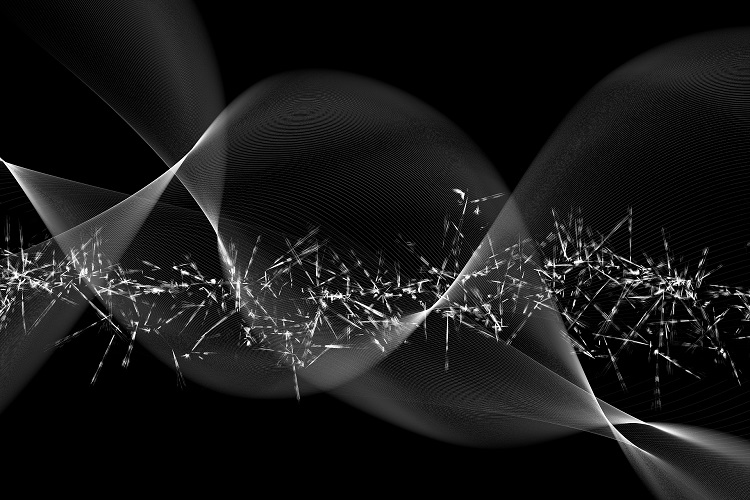Scientists make leap in simulating quantum particles
 New quantum theory research, led by academics at the University of St Andrews’ School of Physics, could transform the way scientists predict how quantum particles behave.
New quantum theory research, led by academics at the University of St Andrews’ School of Physics, could transform the way scientists predict how quantum particles behave.
Quantum theory is a cornerstone of modern physics, explaining the behaviour of isolated particles, like the electrons that orbit atoms. It has shown us that quantum particles have great potential for applications, such as powerful quantum computers with the potential to solve complex problems much more quickly than conventional computers.
In recent years, the possibility of using the states of quantum particles to hold information has become a reality in the laboratory. This has led to the development of quantum processors made of just a few quantum bits, ‘qubits’ – particles that store a particular quantum state. Unlike the bits in conventional computers, which can be either zero or one, a qubit can be in a ‘superposition’ of zero and one at the same time. If calculations can be done on this superposition, it allows some problems, like searching databases to be done faster than on regular computers.
The new research, published in Nature Communications (Monday 20 August), which focussed on the behaviours of individual qubits, opens the possibility of more faithful simulations of the next generation of quantum processors and could allow new insights into quantum mechanics and the development of powerful quantum computers.
The study, led by theoretical physicists, Dr Brendon Lovett and Dr Jonathan Keeling, noted that if real qubits behaved like the textbook qubits, the quest to build a quantum computer would be easy. However, unlike the textbook models of qubits, real-life qubits are never truly isolated, they interact continuously with the vast number of other particles in the world. This means that trying to create a mathematical model of a qubit’s behaviour is very difficult, since we now also need to keep track of what the rest of the world is doing as well. To do this explicitly requires an amount of information that cannot be stored, even on the biggest computers we have. To avoid this, simple models of the interaction between individual qubits and the rest of the world are often used, but these can miss crucial effects.
Dr Lovett said: “Our research has found a ground-breaking new way of keeping the most relevant fraction of information, allowing an exact description of the behaviour of the qubit even on a regular laptop. This work not only opens up the possibility of more faithful simulations of the next generation of quantum processors but could allow us whole new insights into how quantum mechanics works when many particles are put together.”
The paper ‘Efficient non-Markovian quantum dynamics using time-evolving matrix product operators’ is published in Nature Communications and is available online.
Please ensure that the paper’s DOI (http://dx.doi.org/10.1038/s41467-018-05617-3) is included in all online stories and social media posts and that Nature Communications is credited as the source.
Contact the University of St Andrews Communications Office.